Power
Activities related to the Universal Theme of Power.

Part 1: Introducing Universal Theme of Power
So what could you do with a Universal Theme of Power? Well, here’s an introduction that will get your students’ brains sweating.
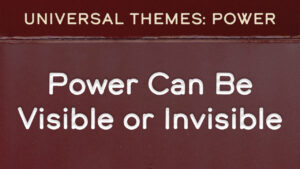
Part 2: Power can be Visible or Invisible
What are examples of unseen Power? And can invisible power be more powerful than visible power?
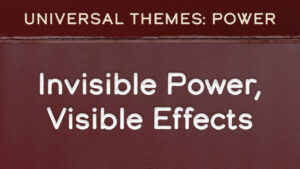
Part 3: Invisible Power Can Have Visible Effects
Can you think of times when power is unseen, but we can clearly see its effects?
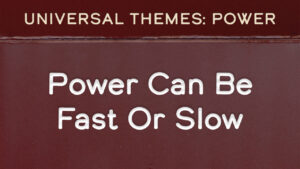
Part 4: Power Can Be Fast, Slow, Loud, or Quiet
Power may seem loud and fast, but it can also be slow and quiet.
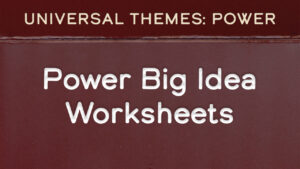
Part 5: Power Big Idea Worksheets
Your students will investigate statements like: Power leads to change, Power comes in many forms, Power can be used or abused.

Part 6: Power – Blue Whale vs Krill
Sure, a Blue Whale is huge. But does a tiny krill have more power?

Part 7: Indirect Power – Lighthouse vs Magnetism
Students explore the idea of indirect power – which can be both visible (a lighthouse) or invisible (magnetism).

Part 8: Who has more power: the Queen Bee or the Hive?
Sometimes power is concentrated in one place. Other times it is spread out.

Part 9: Power and Symbols
When does a simple symbol have more power than a word?
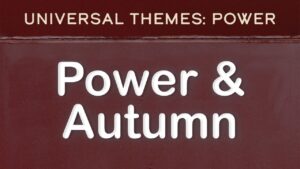
Part 10: Power in Autumn
Autumn was once powerful because of the harvest. What gives Fall its power now?
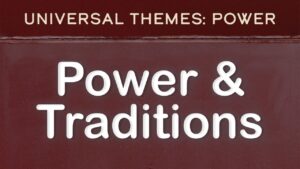
Part 11: Power and Traditions
We compare the power of traditions shared by millions with smaller traditions shared by perhaps just one family.






